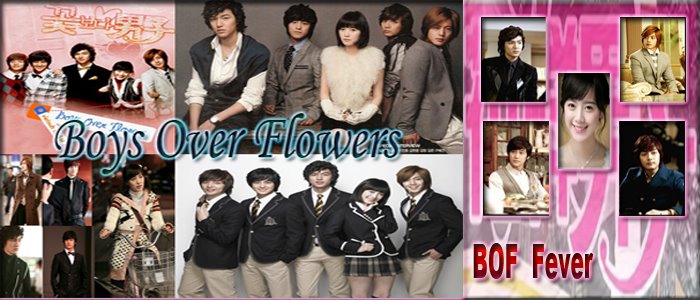
“Pinoys are very much fond of luck or swerte,” a psychology teacher said of Koreanovelas taking over prime time slots. Who does not know Goo Jun Pyo? Well, for those who want to have an idea, here are some insights and psychological views on why Boys over Flowers (BOF) has created such a buzz.
Boys over Flowers is a Korean adaptation of the Japanese Manga series “Hana yori dango.” It is a story about four elite gentlemen who were born with a silver spoon in their mouth. Goo Jun Pyo, their leader, falls for Guem Jan di, a feisty commoner. It progresses with the characters facing challenges and helping each other improve.
As the story continuously unfolds in the big time Korenovela drama, more and more Filipino viewers are drawn to this Koreanovela mania. Apart from the charm and fondness brought by the lead characters, what makes BOF a huge hit is the story itself, which captures the typical dreams and fantasies of a Filipino audience.
Avid viewers of this big hit consider Korean and Philippine culture to be similar. They could easily relate to these types of shows where different situations are portrayed in a light and comical manner. The scenes remind them of their individual pleasures—on family, friendship, and love. As a fan exclaims, “It makes me fall in love over and over again.”
As to why it clicked in Philippine television, Boys Over Flower encompasses the taste of Pinoys when it comes to the different facets of drama. As my teacher explained, the viewers are often drawn to the rags-to-riches story, which mirrors our desire to be the next Cinderella.
Another thing that endears the audience to the characters is the torn-between-two lovers scenes or the love triangle angle in the story. We love the feeling of being loved and appreciated. “It makes us feel important and attractive,” my teacher said.
Viewers can relate to the characters, which make them emotionally attached to the story. While some of us continue to be engrossed with a certain character, we tend to fantasize and secretly hope that what happens to our favorite character in the story would also happen to us in real life. All that drama is structured in a way that we rise and fall with it.“But what happens there will most likely not happen in real life,” the teacher added, bursting our bubble, so to speak.
Whatever it is that makes viewers go loco over Goo Jun Pyo and Boys Over Flowers, remember that a drama has an equal chance of having a positive or negative effect on the viewers. As the teacher advised, it will have a negative effect if we let it drown ourselves in false hopes, and a positive effect if we would rather consider the story as an inspiration to do well in our lives. As viewers, we must be critical of the shows that we choose to follow.
We must know how to draw the line between fantasy and reality, and know when to dream and when to start making those dreams a reality.









No comments:
Post a Comment
post a comment